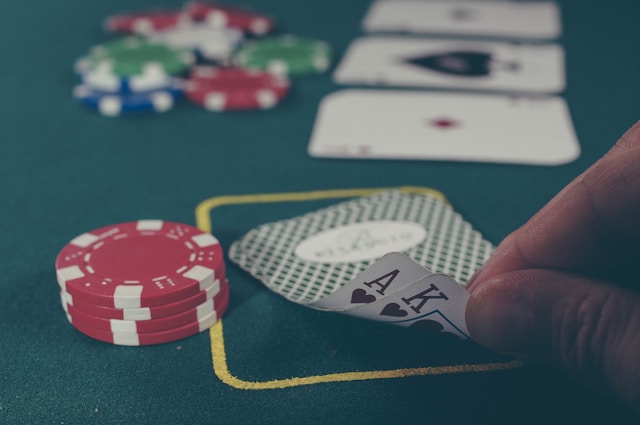Badass vs Dumbass
Master your Financial Kung Fu to be one and not the other.

"You simply cannot predict when and even if the stocks will turn."
- Sifu
Photo by Brock Wegner on Unsplash
Ronin: Sifu! Check this out man. I figured out this genius plan to make beaucoup bucks from the stock market!
Sifu: Oh! This I gotta hear…
Ronin: Well, you see that the markets have dropped every day for the last week, right?
Sifu: Uh-huh.
Ronin: So my plan is to start buying stocks today. Specifically, those that have dropped the most in the last week. They are due for a serious rebound. And when that happens, I’m gonna be in the money. Yeah boy!
Sifu: Really Gordon Gecko? So what happens if the stocks you buy continue to go down? Then what?
Ronin: Oh, I have a plan for that too. If they go down more, I’ll simply buy more. Double down on black, boss!
Sifu: Oy! This genius scheme of yours is going to make you homeless before you know it, wiseass.
Ronin: Whuuuut?
Sifu: Ronin, do you know what The Gambler’s Fallacy is?
1. What is the Gambler’s Fallacy?
Ronin: Oh, you mean that thing where I think if I lose five times in a row, I’m due for a win on the next hand? Yeah, I’m familiar… it’s called Tuesday night poker. What does that have to do with the stock market?
“Our minds are hardwired to look for patterns, even where none exist.”
Steven Pinker
Sifu: Well this fallacy applies to more than just poker or other casino games. The Gambler’s Fallacy is the belief that past random events affect future outcomes. Like thinking you’re “due” to win after a losing streak.

Photo by Michał Parzuchowski on Unsplash
Ronin: Right. But it works, doesn’t it? Just makes perfect sense that it’s gotta turn. And, I’ll be right there when it does to capture that win.
2. Misinterpreting Market Trends
Sifu: Listen up, Master Ijut. People like you think that if prices drop for a few days, they’re due to rise again. They start throwing money in, expecting a bounce. That’s how they end up broke.
Ronin: So it’s like thinking I’ll find a girlfriend because I’ve been rejected by ten in a row?
Sifu: Hmmm, maybe.
3. Doubling Down After Losses
Sifu: Here’s the thing: market drops don’t mean the market owes you a rebound. People get emotional, make irrational decisions, and double down to chase their losses. There’s an equal chance that those stocks continue they path downward and lead you to serious losses. You simply cannot predict when and even if the stocks will turn. Many have gone broke trying to time the market this way.
“If you toss a coin 999 times and it comes up heads, the odds on the next toss are still 50-50.”
Neal Stephenson
Ronin: So, it’s like me betting everything I own on red at the casino after losing my rent money. But with stocks.
Sifu: Exactly. Except in the market, you could lose your future, not just this month’s rent.
Ronin: Doh!
4. Avoid the Gambler’s Fallacy. Use Dollar-Cost Averaging.
Sifu: Instead of timing the market, use dollar-cost averaging. Invest the same amount regularly, no matter what the market’s doing.
Ronin: Sounds boring, boss.
Sifu: Exactly. Believe it or not, boring is the winning strategy. Stay rational, don’t let your emotions run the show. Life doesn’t have to be a casino. Treat it seriously, and you’ll be rewarded. Risk it doing stupid shit, and I can def see you begging Second Cousin Cletus to let you stay in his spare room after you get kicked out of your rental.
Ronin: FML. Serious bummer, dude.
Sifu: Nah, you’ll be fine, #1. Just stick with what is proven to work. Go back over my notes from previous lessons.
Ronin: Sheeeeeit. Back to school!
The Gambler’s Fallacy is a dangerous cognitive bias that can lead to financial missteps, especially on the path to financial independence and early retirement (FIRE). Understanding how this thinking error can impact your decisions is crucial if you want to stay on track. Let’s explore how this bias works and learn from the infamous story of Jesse Livermore—one of the most successful stock traders of all time, whose downfall serves as a warning for all investors.
This article is for informational purposes only. It should not be considered Financial or Legal Advice. Not all information will be accurate. Consult a financial professional before making any significant financial decisions.